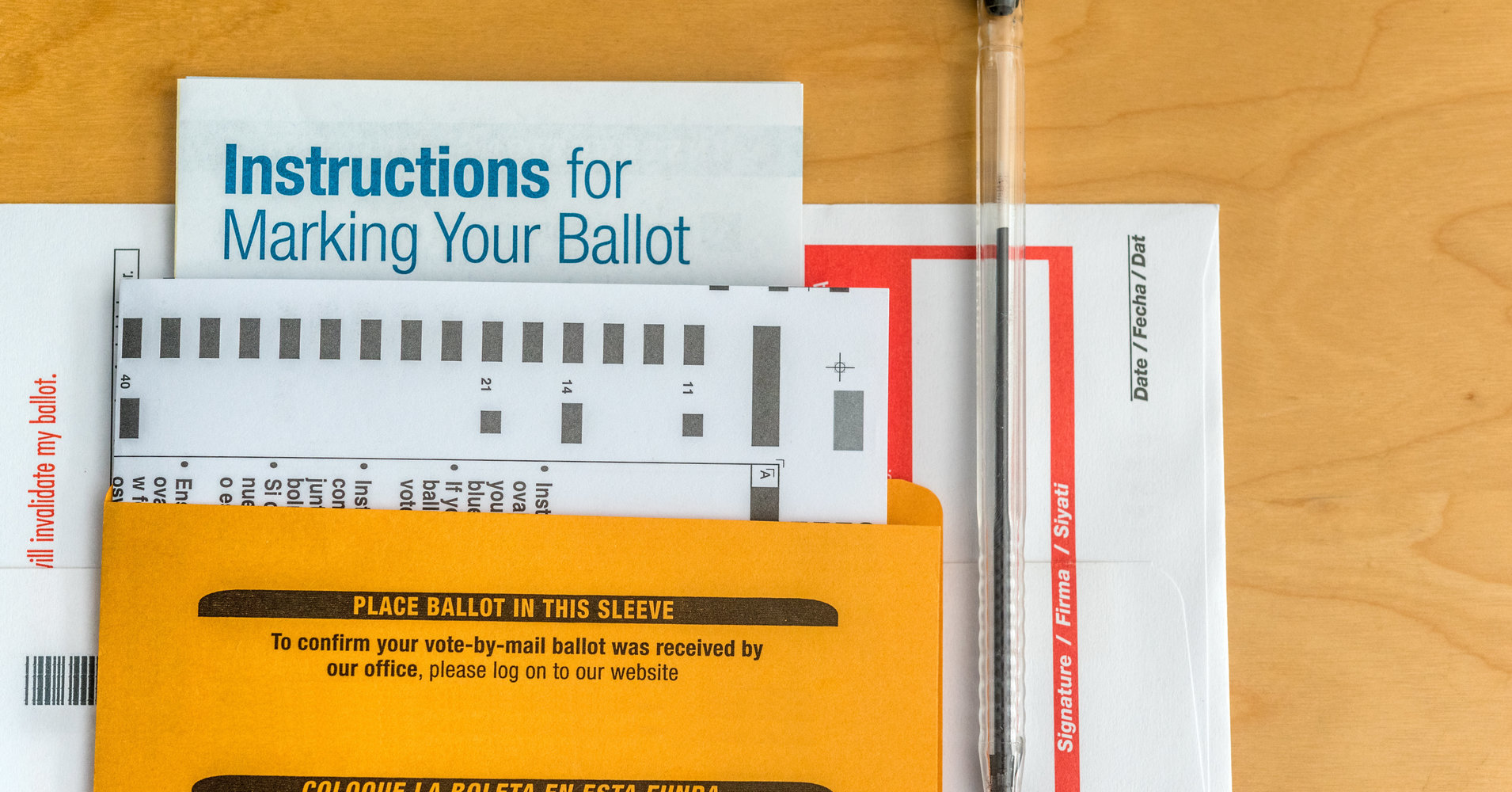[ad_1]

Amid escalating tensions over voting rights in Georgia, a county in the state is facing scrutiny for rejecting an unusually high number of mail-in ballots.
As of Monday evening, Gwinnett County, the second most populous in Georgia, had rejected 464 mail-in ballots, 6 percent of those that had been submitted. Through Sunday, the rejected ballots in the county amount to nearly 40 percent of the mail-in ballots rejected in the state, according to an analysis by The Atlanta Journal-Constitution. The high rejection rate was first reported by WhoWhatWhy, an investigative site.
In a letter to county officials dated Monday, the Lawyers’ Committee for Civil Rights Under Law said the number of rejected ballots in Gwinnett County is “hundreds more than any other Georgia county.”
The Coalition for Good Governance, a government accountability group, sued the county in federal court in Atlanta over the matter on Monday. The group says the county is disproportionately rejecting ballots from people of color. According to data analyzed by the Lawyers’ Committee, whites, who make up 55.4 percent of the county’s population, have a rejection rate of 2.5 percent. Asian Americans, who make up 12.2 percent of the county’s population, have a rejection rate of 14.8 percent. Blacks and Hispanics respectively make up 28.7 percent and 21.2 percent of the county’s population, and have respective rejection rates of 8 percent and 4.3 percent.
It’s not clear why the county stands alone in the number of ballots it’s rejecting and why it’s having a different effect on different groups, experts say.
Voting rights have become a core issue in Georgia’s midterm elections. Stacey Abrams, a Democrat who could become the first black woman to be elected governor in the U.S., has accused her opponent, state Secretary of State Brian Kemp (R), of trying to suppress black voters. Kemp, who doesn’t play a role in determining how Gwinnett or any other county processes its absentee ballots, has denied the charge.
Joe Sorensen, a county spokesman, told the Journal-Constitution he couldn’t draw any conclusions, and said Gwinnett County is in compliance with state law. Sorensen declined to comment further on Tuesday, citing ongoing litigation.
Michael McDonald, a professor at the University of Florida who tracks voter turnout through the United States Elections Project, speculated the reason could be confusion over a state requirement that voters list their birth year when they sign their absentee ballot envelope. Counties are inconsistent in logging their reasons for rejecting mail-in applications, but Gwinnett is the only county that is citing year of birth as the basis for doing so, McDonald said.
“It could be just incompetence, not nefarious, but whether or not it’s incompetence or nefarious, it has a discriminatory effect,” he said.
McDonald said Gwinnett could choose to accept ballots from people who accidentally left their birth year off their absentee ballot or incorrectly filled out that section, even though state law says the year of birth is required.
He also noted that in 2017, Gwinnett had to begin providing election materials in Spanish to comply with the Voting Rights Act. The county changed the absentee ballot envelope to include Spanish and English directions, and McDonald said voters may have been confused by the instructions.
The county can also reject an absentee ballot if the voter’s signature on the envelope doesn’t match the one the state has on file. That’s a problem because a person’s signature can change significantly over time, said Daniel Smith, a political science professor at the University of Florida who has studied absentee ballot rejection. The American Civil Liberties Union sued the state and county in federal court over the signature-matching requirement on Tuesday, arguing that voters’ ballots could unfairly be thrown out before they have a chance to prove their identity.
“People should not be denied their right to vote because of penmanship, but that’s exactly what is happening in Georgia,” Sophia Lakin, a staff attorney with the ACLU’s Voting Rights Project, said in a statement. “With an election on the horizon, we should be protecting voters, not denying them the opportunity to ensure their vote is counted.” In August, a federal judge ruled that a similar system of rejecting ballots in New Hampshire was unconstitutional.
The standards by which different counties process absentee ballots can vary, Smith said. The envelope people have to sign in Gwinnett County, he said, is “just a mess.”
“That envelope, you have any problems with eyesight, you’re not gonna read it, much less [if] you can’t figure where it’s gonna be in English and Spanish,” he said.
[ad_2]
Source link

